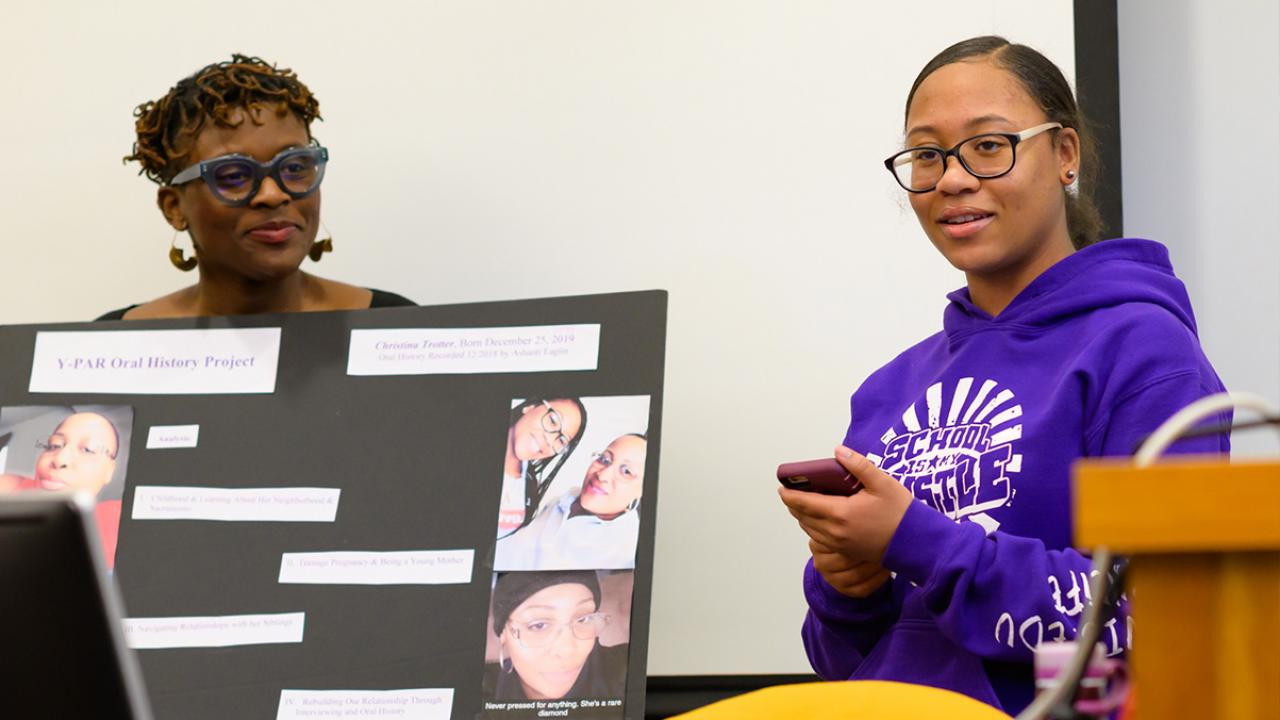
Project HEAL: Bringing #BlackGirlMagic into the Classroom - a Pictorial Report
Sacramento Area Youth Speaks (SAYS) presents
Bringing #BlackGirlMagic into the Classroom
A Community Discussion on Black Girlhood, Youth Participatory Action Research (YPAR), and Critical Pedagogies
Featured Speakers:
- Bettina Love, Associate Professor of Educational Theory & Practice at the University of Georgia
- Jeanelle K. Hope, Ph.D. Candidate
- Patrice Hill, SAYS School Coordinator
- Denisha Bland, SAYS Campus Coodinator
- Burbank High School Students in the SAYS Project HEAL class
Co-sponsors: SAYS, UC Davis Office of Research and Policy for Equity, Feminist Research Institute, Aoki Center
This event was organized by an FRI Seed Grant recipient.
Video of Event: https://mediasite.ucdavis.edu/Mediasite/Play/b0615c8f0ff24739b16e18b4739f87961d
Pictorial Report
On February 19, FRI Seed Grant recipient Jeanelle Hope chaired "Bringing #BlackGirlMagic into the Classroom: A Community Discussion on Black Girlhood, Youth Participatory Action Research (YPAR), and Critical Pedagogies." Hope is a doctoral candidate in Cultural Studies who also works as a community organizer in Sacramento, doing community engaged work with Sacramento Area Youth Speaks (SAYS) in collaboration with Vajra Watson.
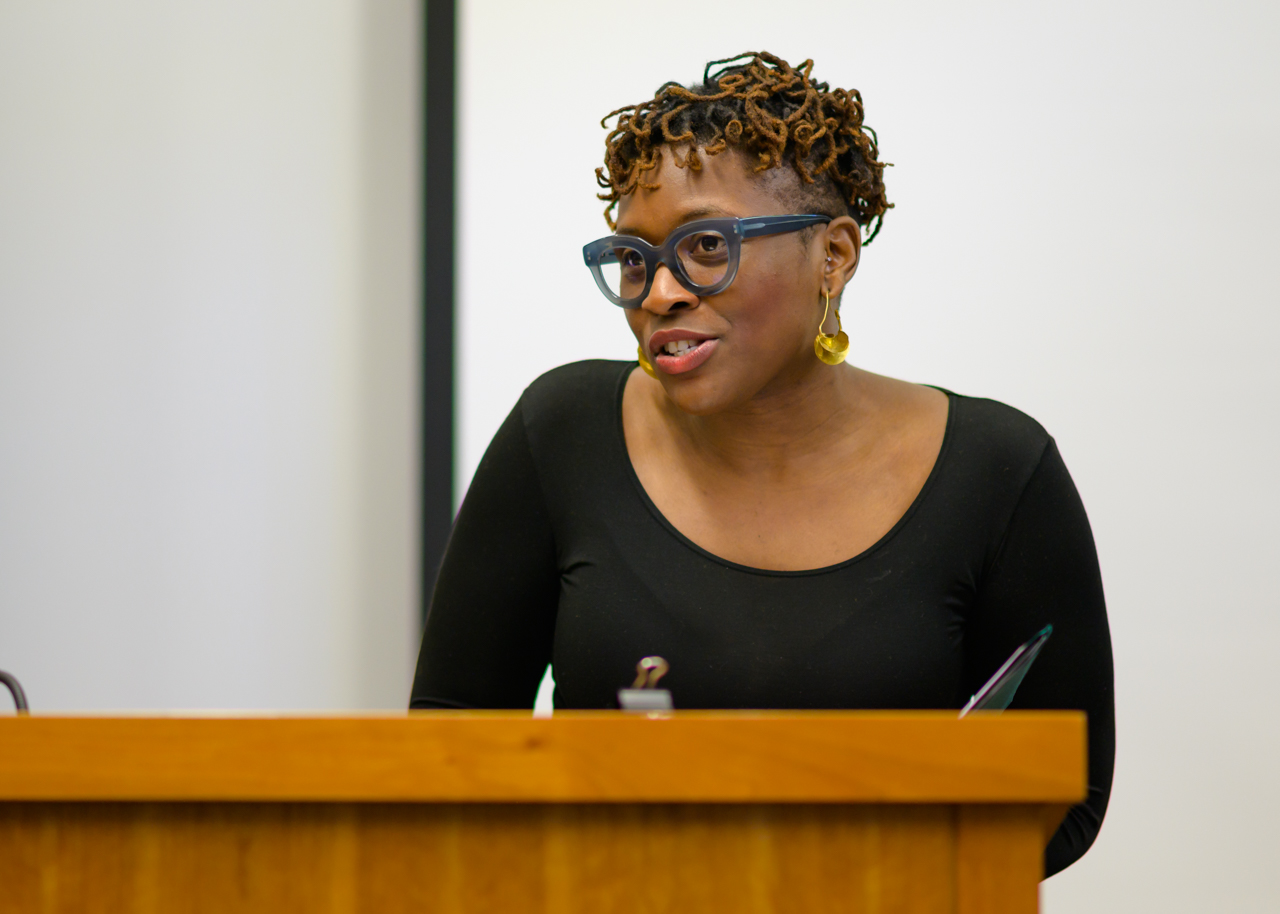
The event was one of a number of programs organized around the ninth annual UC Davis Equity Summit, and focused on SAYS' Project HEAL, a year-long elective at Luther Burbank High School in South Sacramento aimed at addressing the needs and experiences of Black girls faced with disproportionate systemic oppression. Hope opened the event with a screening of a "Poetic Service Announcment" (PSA) featuring SAYS school coordinator and poet-mentor-educator Patrice Hill.
The PSA was filmed in SAYS' Project Heal class in 2017, and features some of the students presenting at today's event.
Background
SAYS was founded in 2008 as an innovative critical literacy and teacher professional development organization designed to engage under-performing youth of color in Sacramento, with hip hop, spoken work, performance, and poetry at its core. SAYS works with middle and high schools to provide culturally relevant courses and instruction to predominantly Black, Latinx, and Southeast Asian American students. Its rigorous training combines critical pedagogy, social justice, instructional strategies, and educational equity through its work in schools and community spaces.
In 2016, SAYS piloted Project HEAL. The acronym refers to:
- Health
- Education
- Activism, or Artivism
- Leadership
As Hope describes Project HEAL and the students,
We created a space where we love them, unapologetically. We see them, we know where they've been, and we have the pedagogical tools to best support them as they make their way through high school and into their next stage of life.
Project HEAL is led by two Black women teaching artists:
Patrice Hill, lovingly referred to by the youth and community as "Mama P", is a community-based educator with over a decade of experience teaching in urban classrooms and writing and spoken word. As a poet, Hill has performed extensively throughout California and on national stages. Hill serves as program coordinator of SAYS.
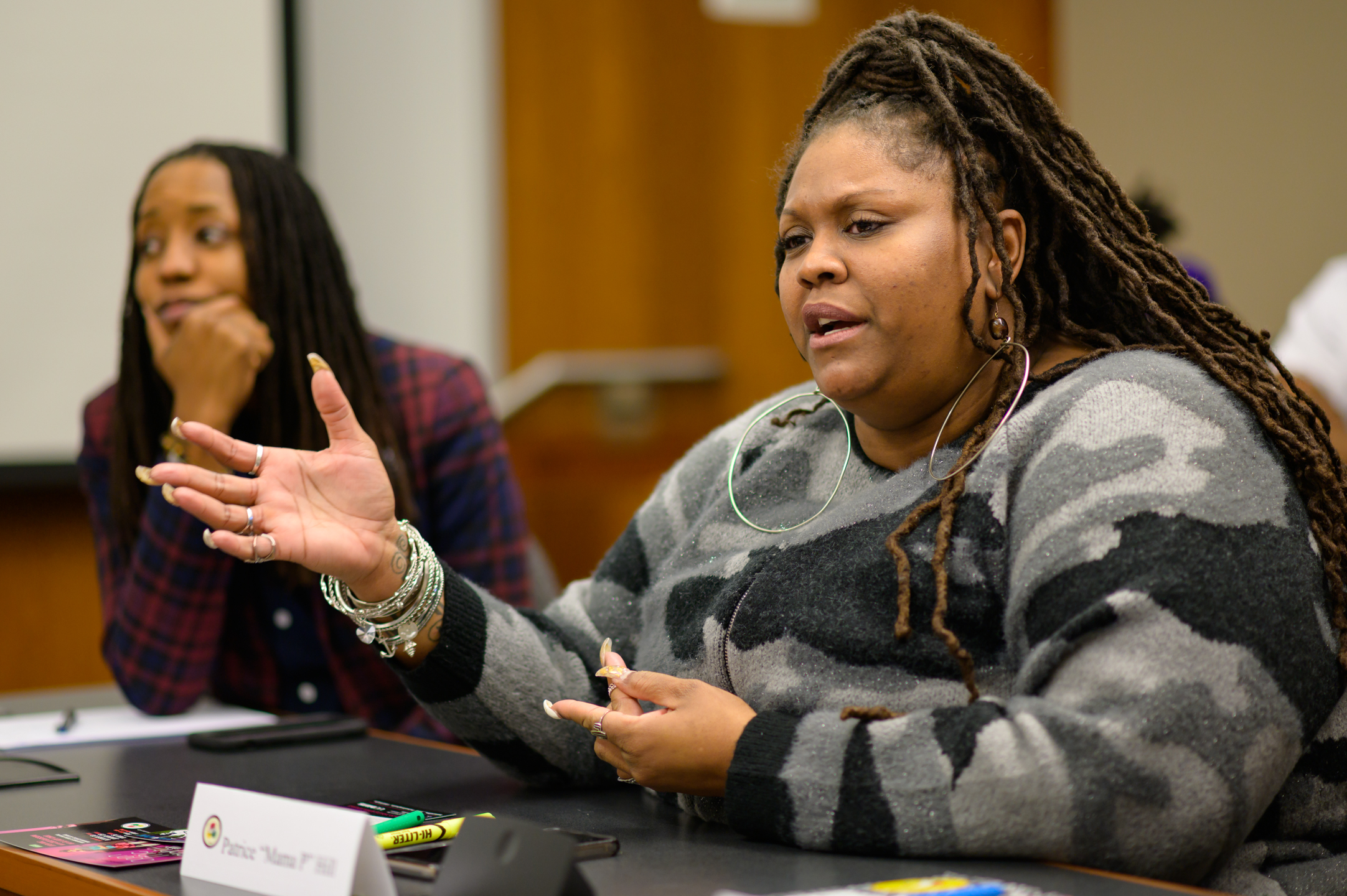
Denisha Bland, often referred to "Auntie or Ms. Coco," is a SAYS alumna and lead poet educator and operations manager. She is a single mother from Pittsburg and Sacramento with a passion for empowering youth and others through the power of spoken word, writing, and education.
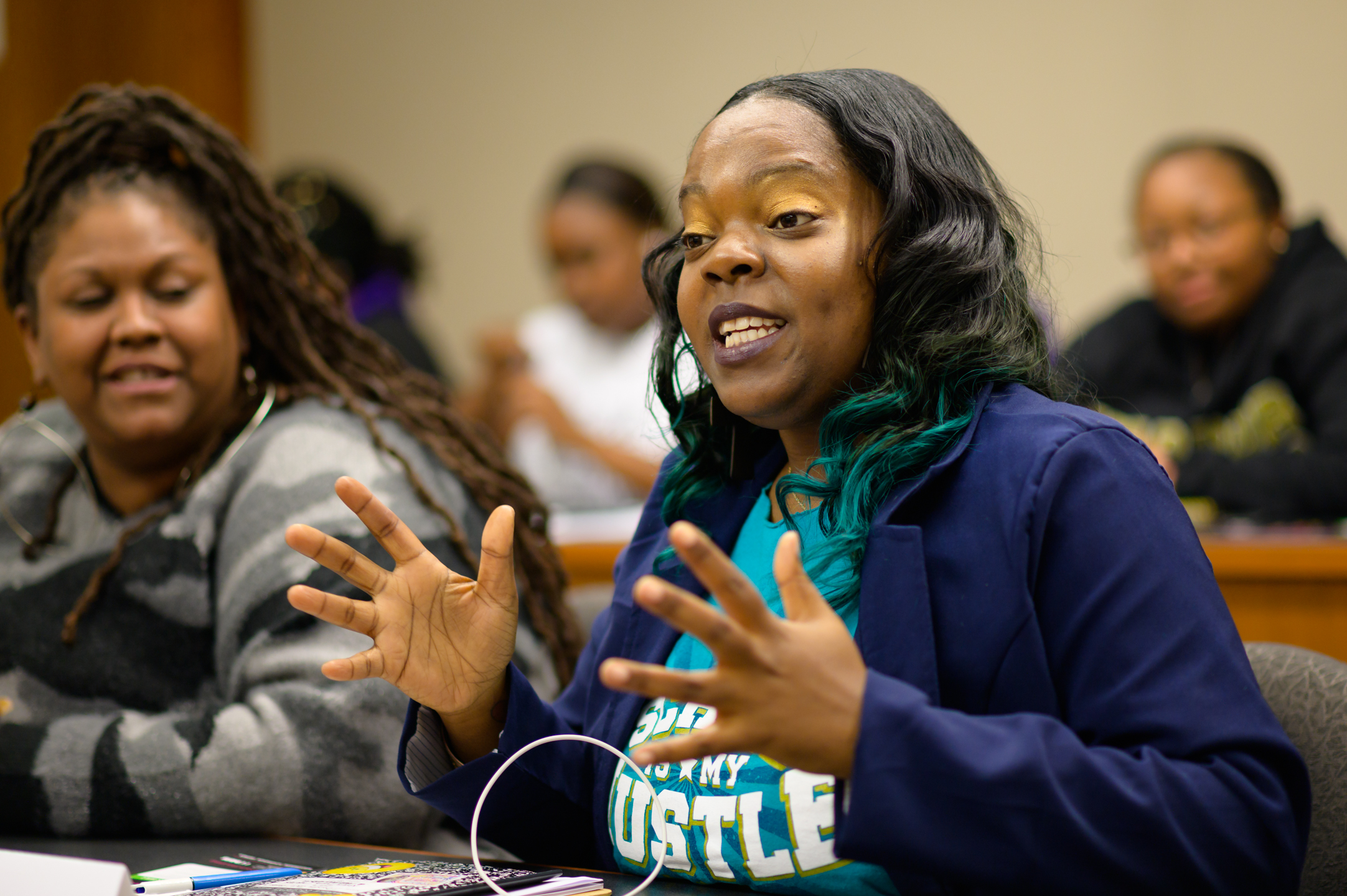
The panel also featured Equity Summit keynote speaker, Dr. Bettina Love, an award-winning author and associate professor of educational theory and practice at the University of Georgia.
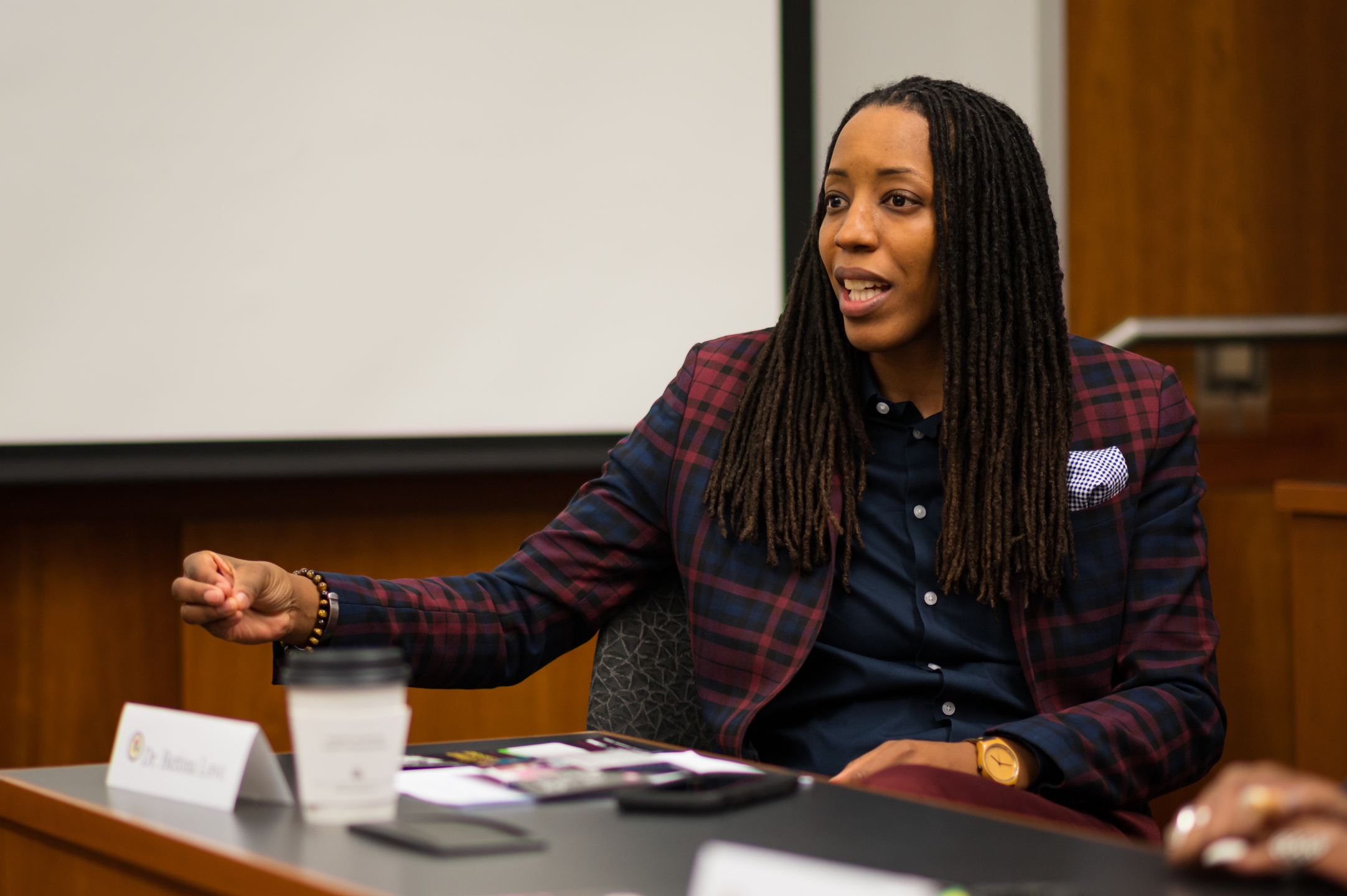
Love's research examines how urban youth negotiate hip hop music and culture to form social, cultural, and political identities to create new and sustaining ways of thinking about urban education and intersectional social justice. Coincidentally, Dr. Love's new book, We Want To Do More Than Survive: Abolitionist Teaching and the Pursuit of Educational Freedom, was released on the same day as this panel.
Student Testimonials
Project HEAL students Elizabeth "Lizzy" Y. and Markeisha B. presented reflections on their experiences in the program.
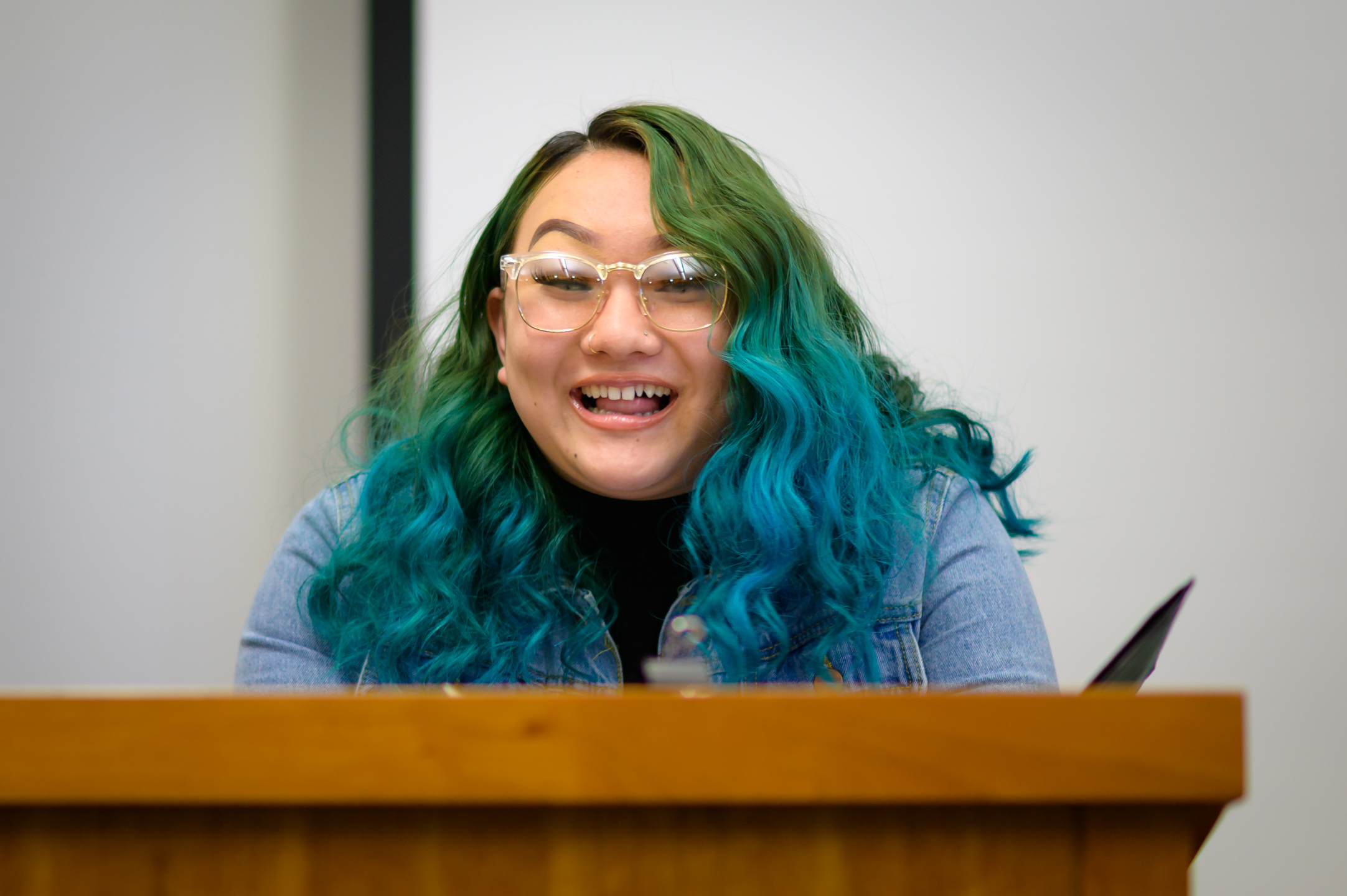
Lizzy, a third year student, spoke to how "Mama P and Ms. Coco and my fellow classmates helped me understand how I could and can battle difficult situations alone," and how, as a result, her attendance and grades improved dramatically, providing life skills she can continue to use beyond high school.
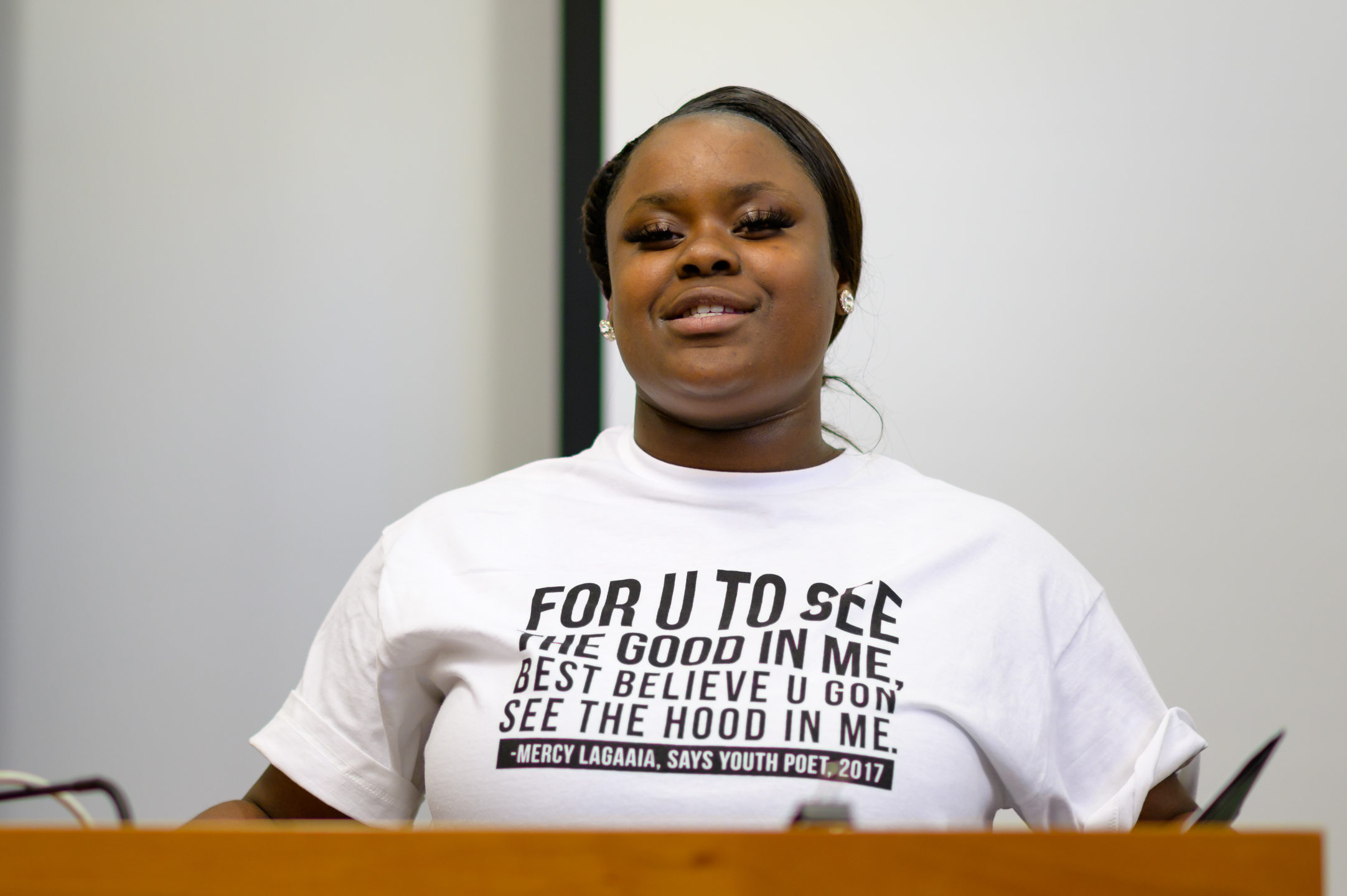
Markeisha expressed appreciation for having Black educators in a classroom of Black girls, "It's different because they know what it means (to be Black), and they grew up how we grew up."
Student YPAR Projects
As a social and cultural historian whose work uses oral history, Hope wanted to share the youth participatory action research method (YPAR) with students, with three goals in mind:
- for students to learn more about their South Sacramento community from their families and communities, particularly from the women in their families;
- to help (re)build relationships with matriarchs and women in their families and communities;
- to introduce students to a qualitative research method that they could use for other assignments, senior projects, and in the future.

Carleese B., a ninth grader at Luther Burbank High School, presented a moving oral history project about her grandmother and the adversity her grandmother faced in childhood.
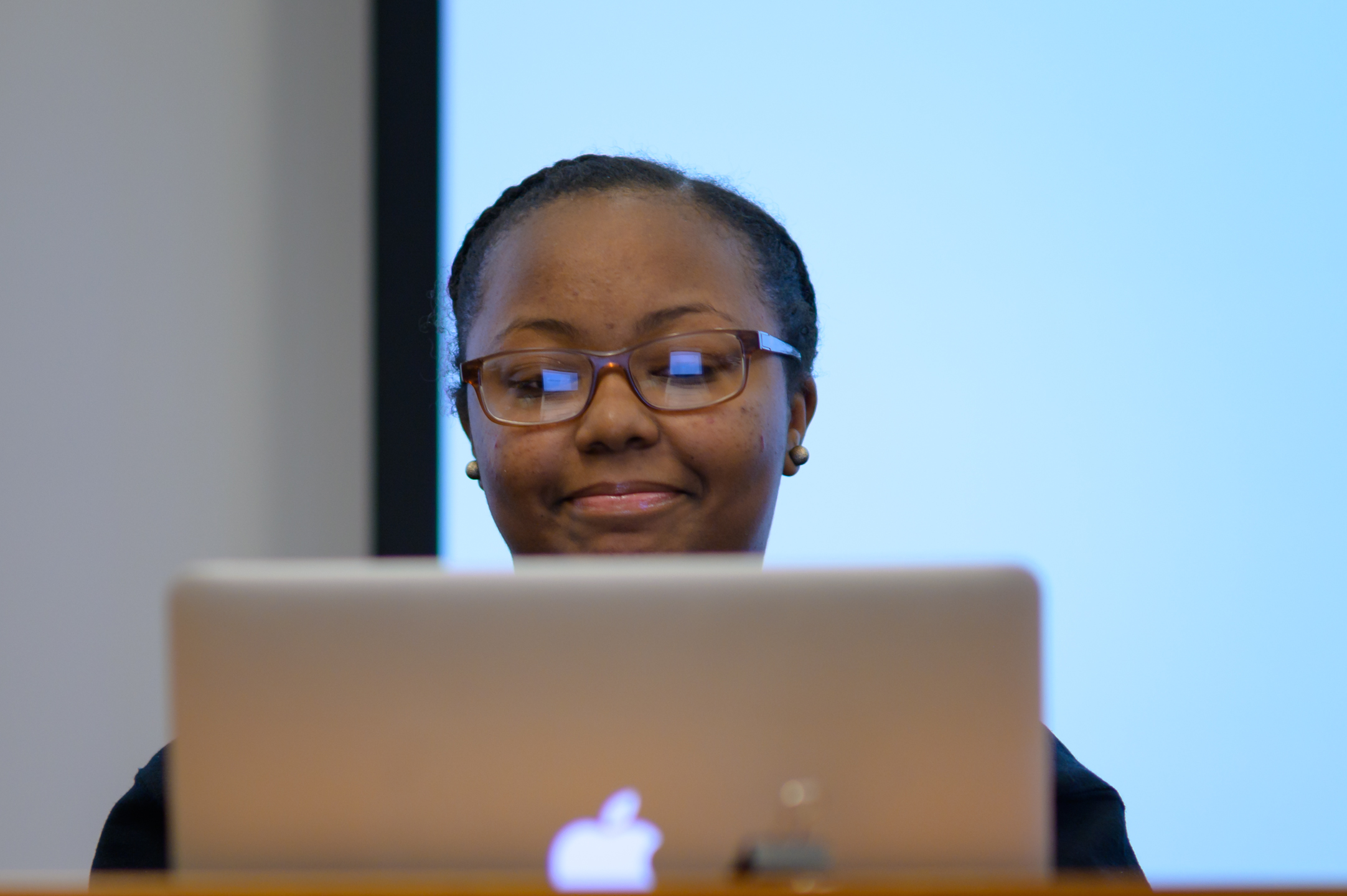
Growing up I didn't have a voice, and after interviewing her I learned a lot of things about how to speak your voice and how to speak your truth, because no one else can speak it for you.
— Carleese B.
Ashanti E., a junior, presented her YPAR project on her mother.
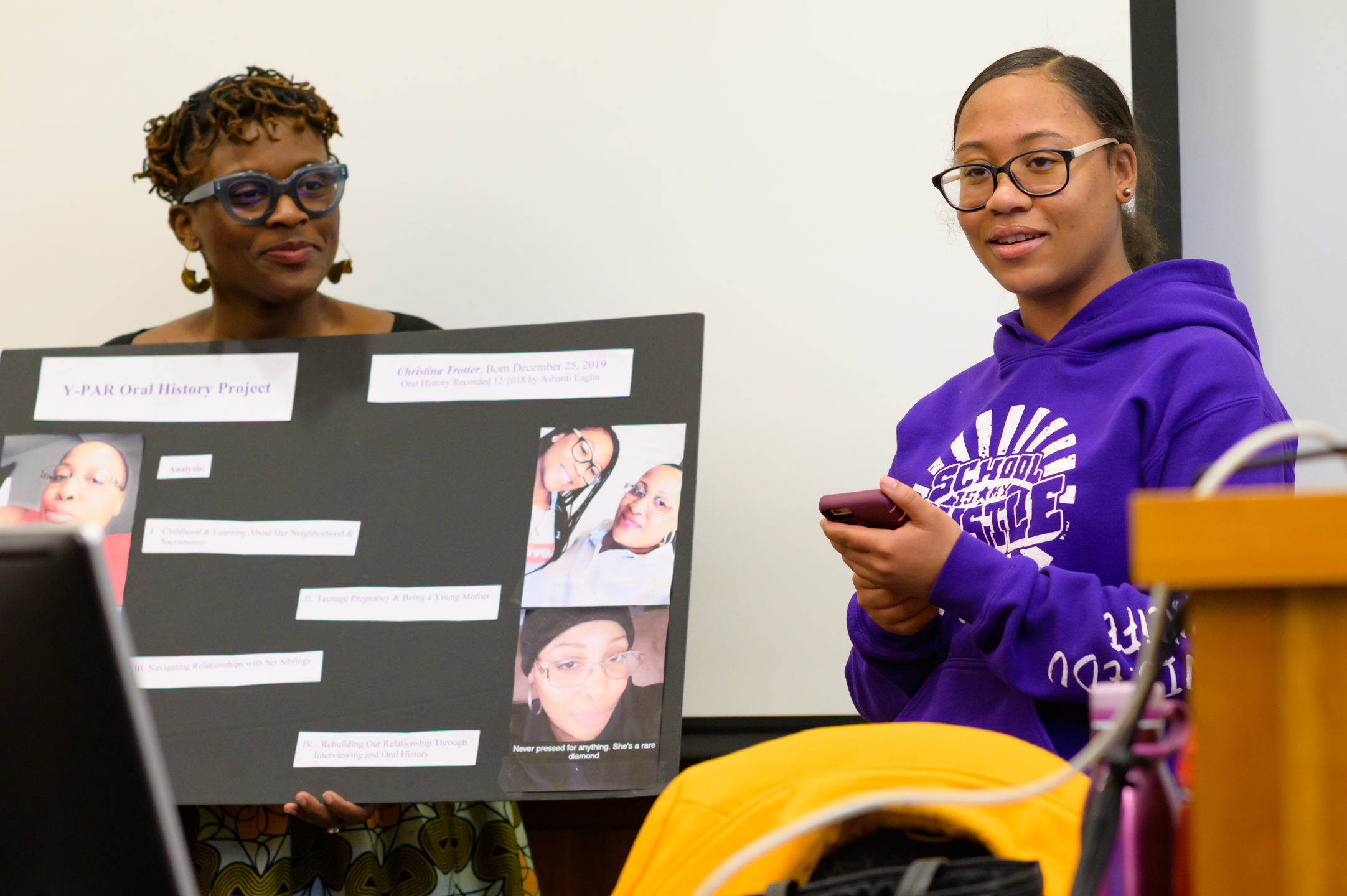
Ashanti admires her mother for her strength, so she was moved during the interview process by her mother's admission of the fears she faced when she was as a teenager.
Alanayshia M., an eleventh grader at Luther Burbank, is developing a video from the interview she did with her great-grandmother. She discussed key topics from the interview, including interracial marriage in the 1960s, her great-grandmother's presence at her birth, and how the interview process bridged intergenerational tension and brought the two of them closer together.
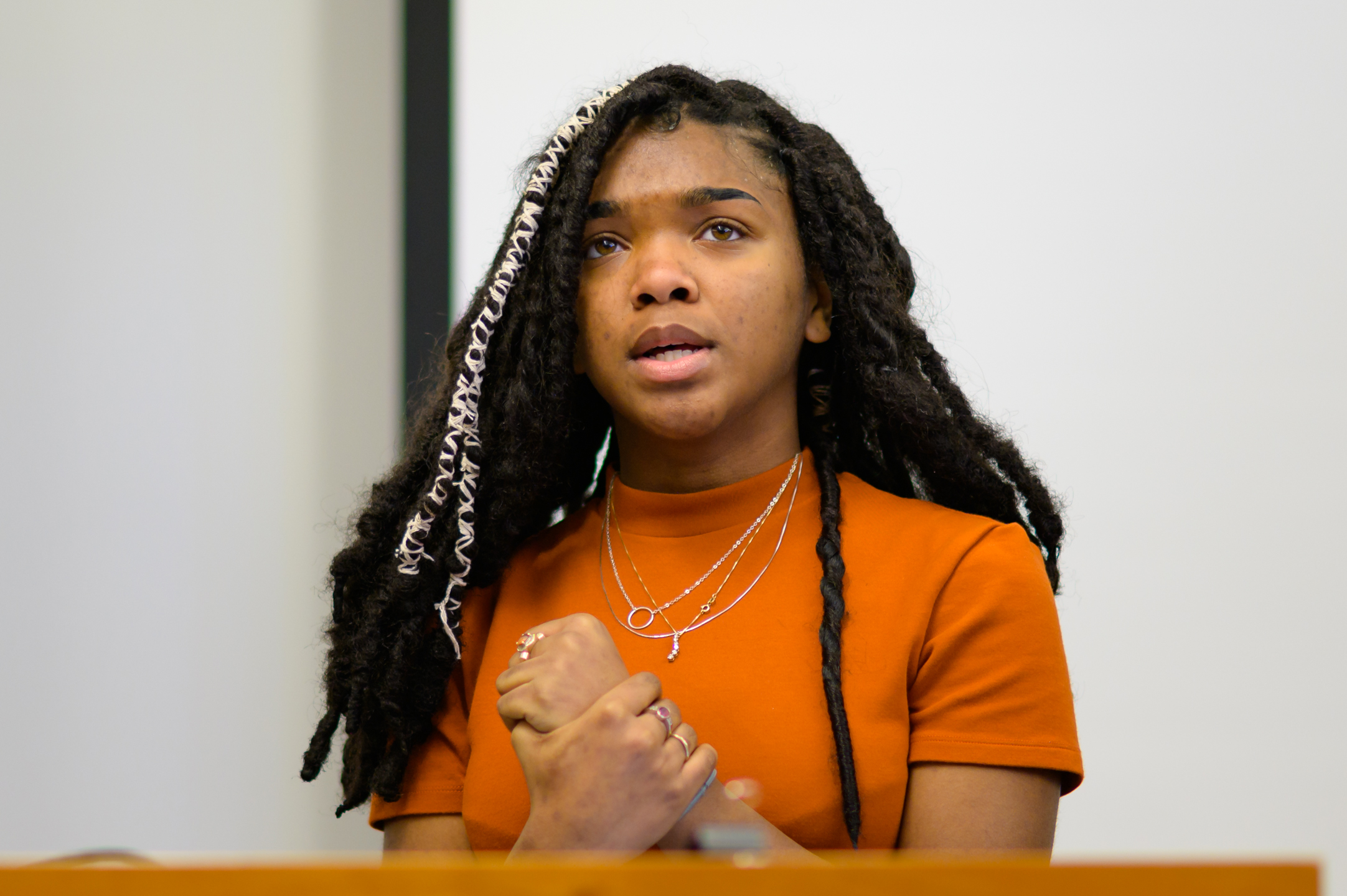
Alanayshia asked her great-grandmother what advice she wanted to give everyone, and closed her presentation by playing an audio recording of her response.
Whatever dreams that you have in life, follow your dreams, and don’t let other people persuade you not to do what you want to do. You have to do what you want to do for you, not for anybody else. So as you become older and you start going to college, and you have goals that you feel that you can make and accomplish, follow your dreams. — Sheila M., as recorded by great-grandaughter Alanayshia.
Conversation
The event shifted gears to open up a conversation among the panelists.
Dr. Bettina Love commented on how Project HEAL affirms what the research says: "You make space, you love our Black girls, and there's not a deficiency problem, not an intellectual problem. It's just about creating beautiful spaces and giving them a chance to heal, and they will do the work and they will rise to the occasion."
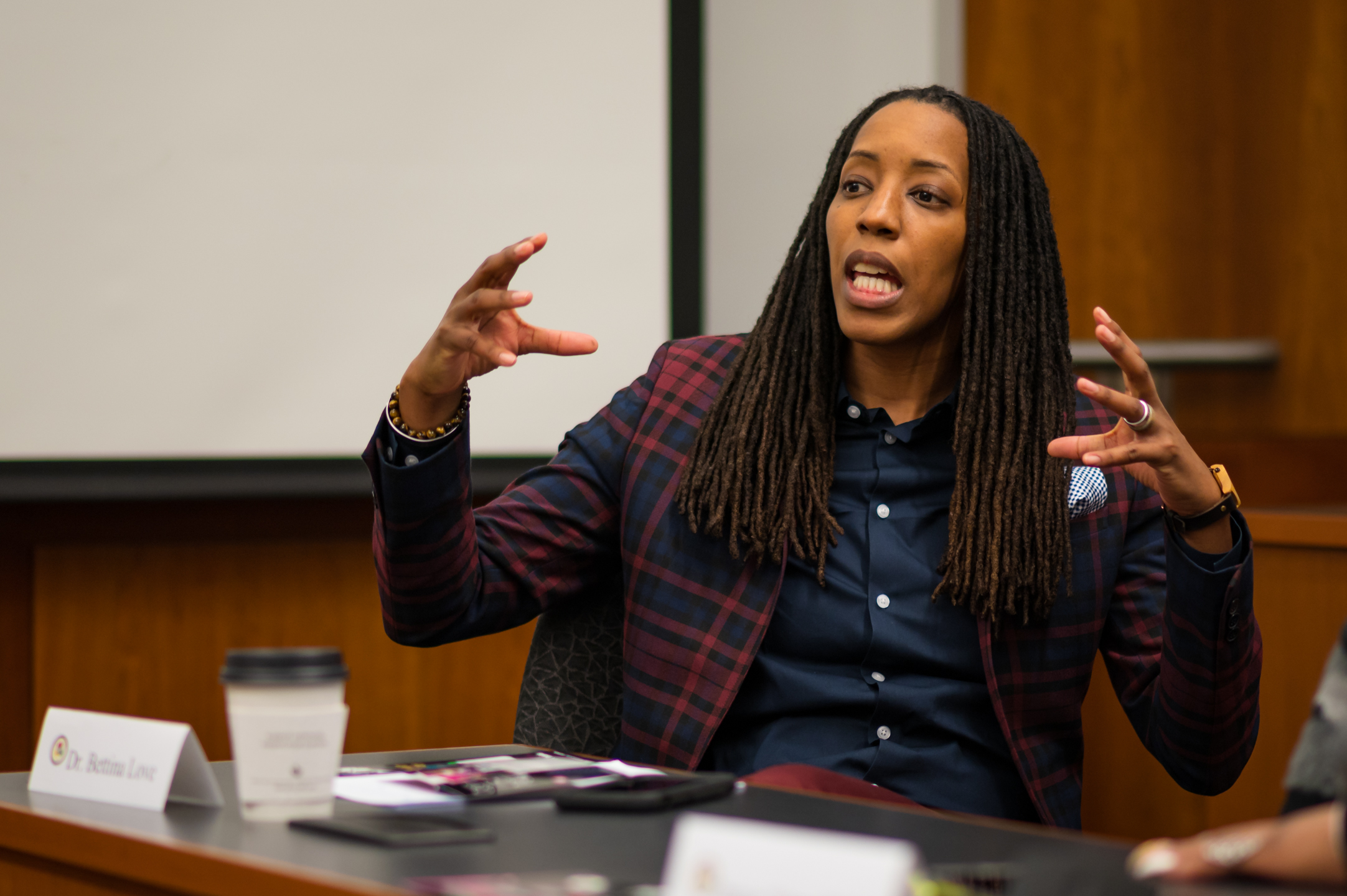
Dr. Love continued:
The program and class shows the possibilities when Black folks get to be in charge of Black folks' education in ways that matter, ways that are healing, in ways that take out all the bureaucracy of this thing that we call education that pretty much gets in the way of the real education that Black folks need to give Black girls.
On the subject of pedagogical substance, Patrice Hill addressed the importance of the exercise of the regular classroom rigor of pacing guides and curriculum standards alongside culturally relevant content in practicing Project HEAL's curriculum of activism and leadership.
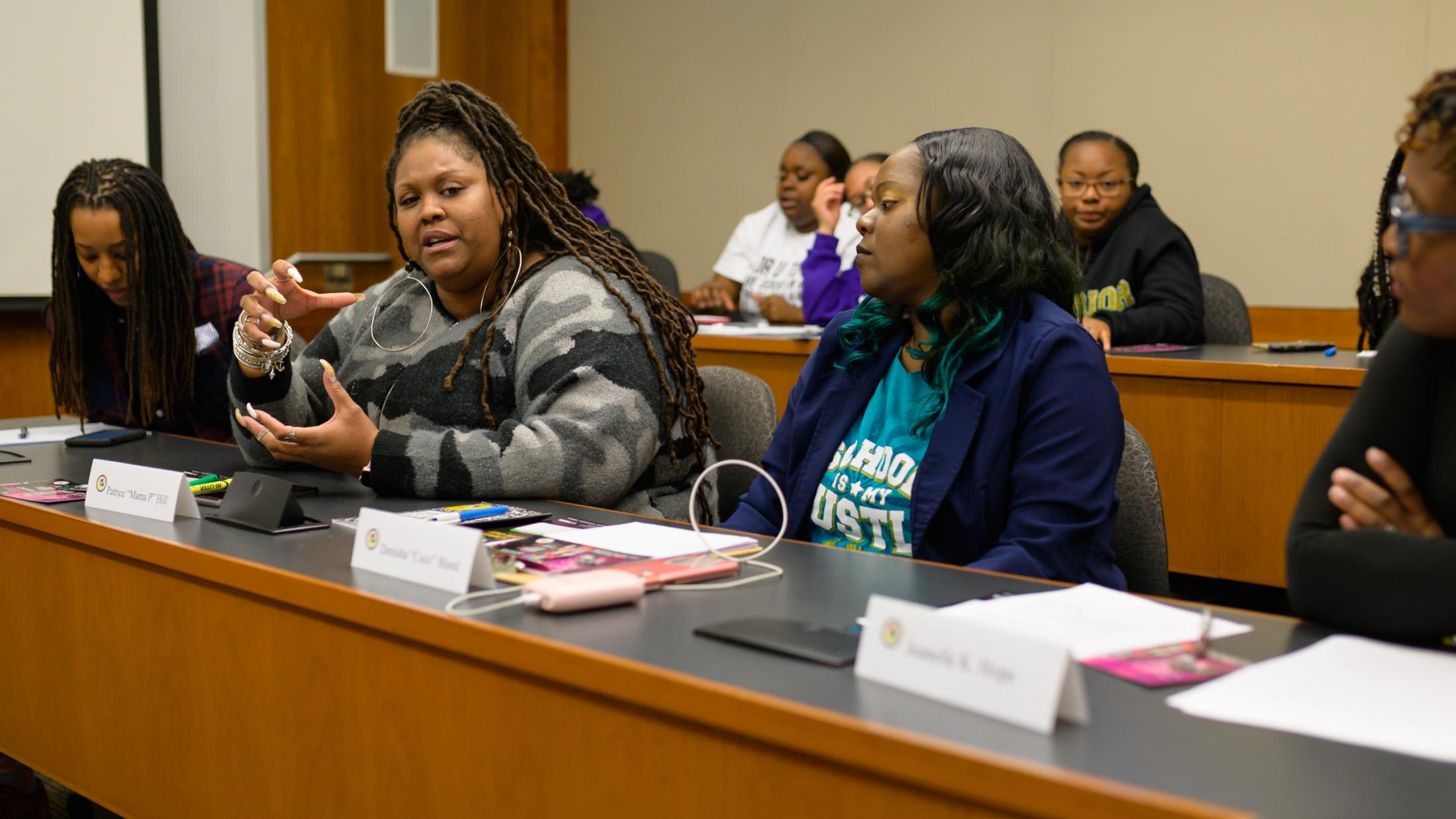
Hip hop, spoken word poetry, and a grounding in the herstory of Black sheroes provide a pedagogical context in which to analyze what it really means to be Black, based on the lived experiences of the students themselves.
Denisha Bland emphasized how the pedagogy is embodied through the process of writing.
To allow them to get their feelings out, get their hurts out, in these journals, and then come back and Sankofa their own life and journey, it just also helps them grow as well.
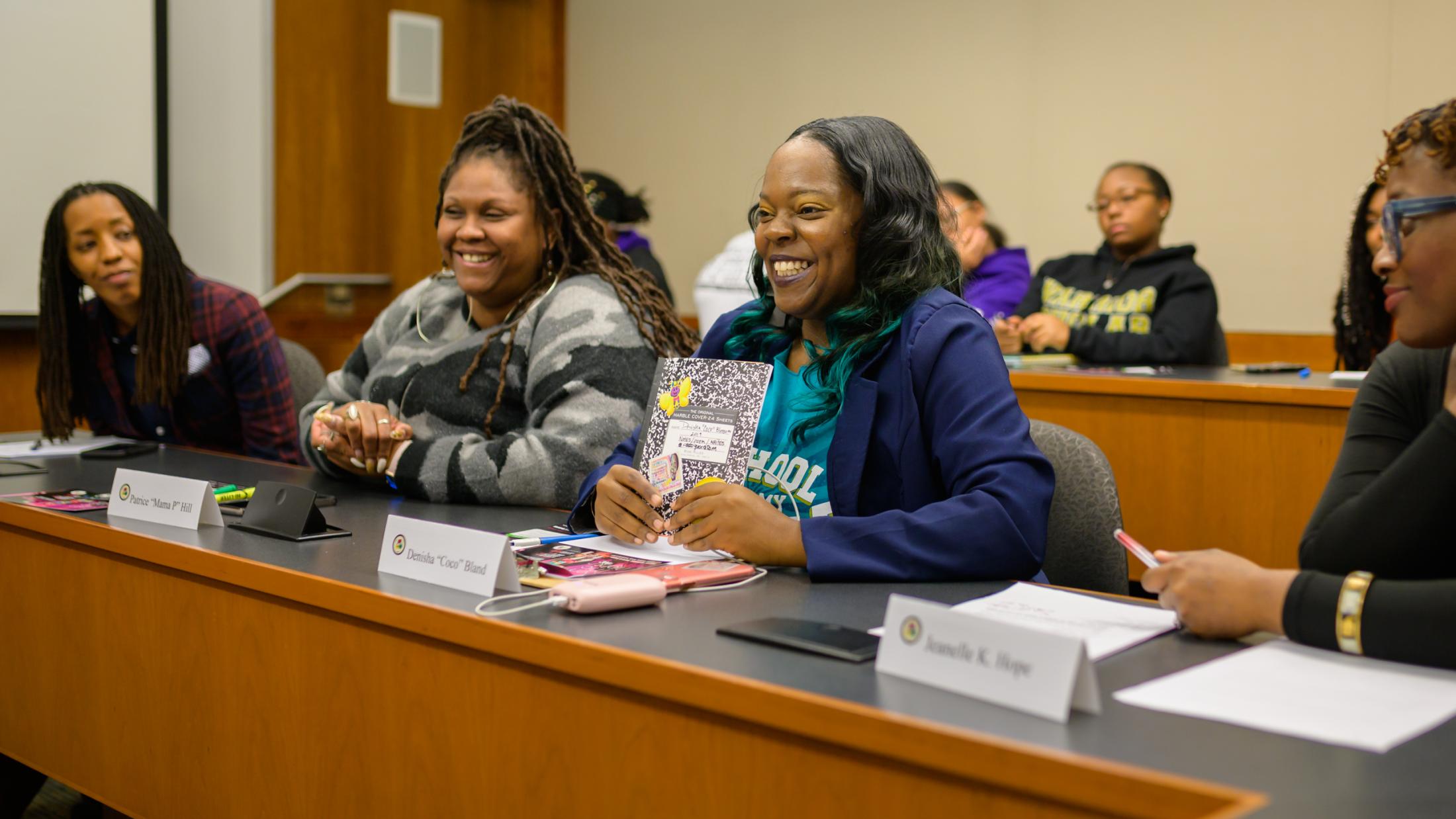
Reciprocity between Students and Educators
Mutual reciprocation of care and respect was demonstrated when students entered the conversation to express their appreciation of and pose questions to their Project HEAL educators.
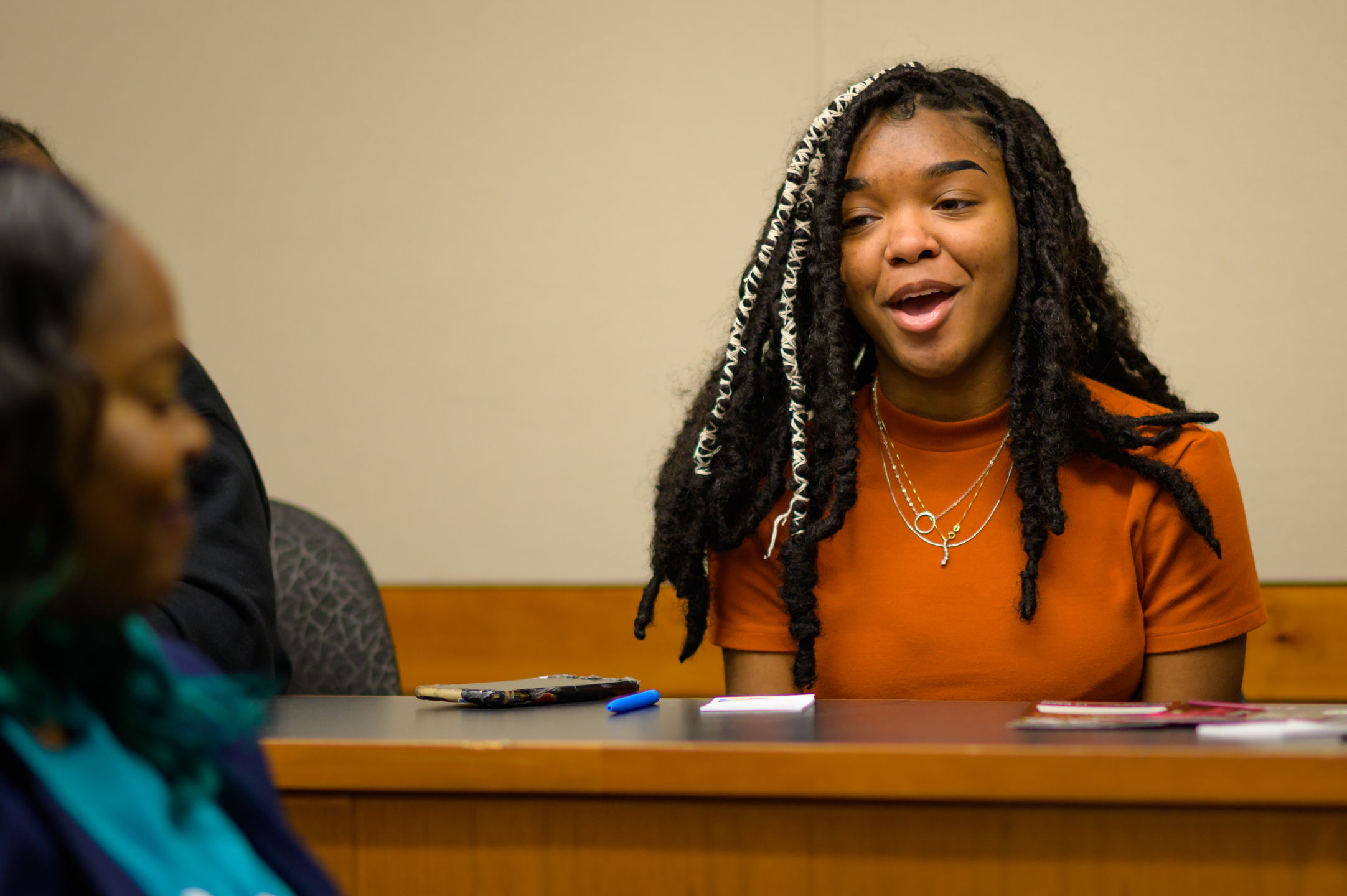
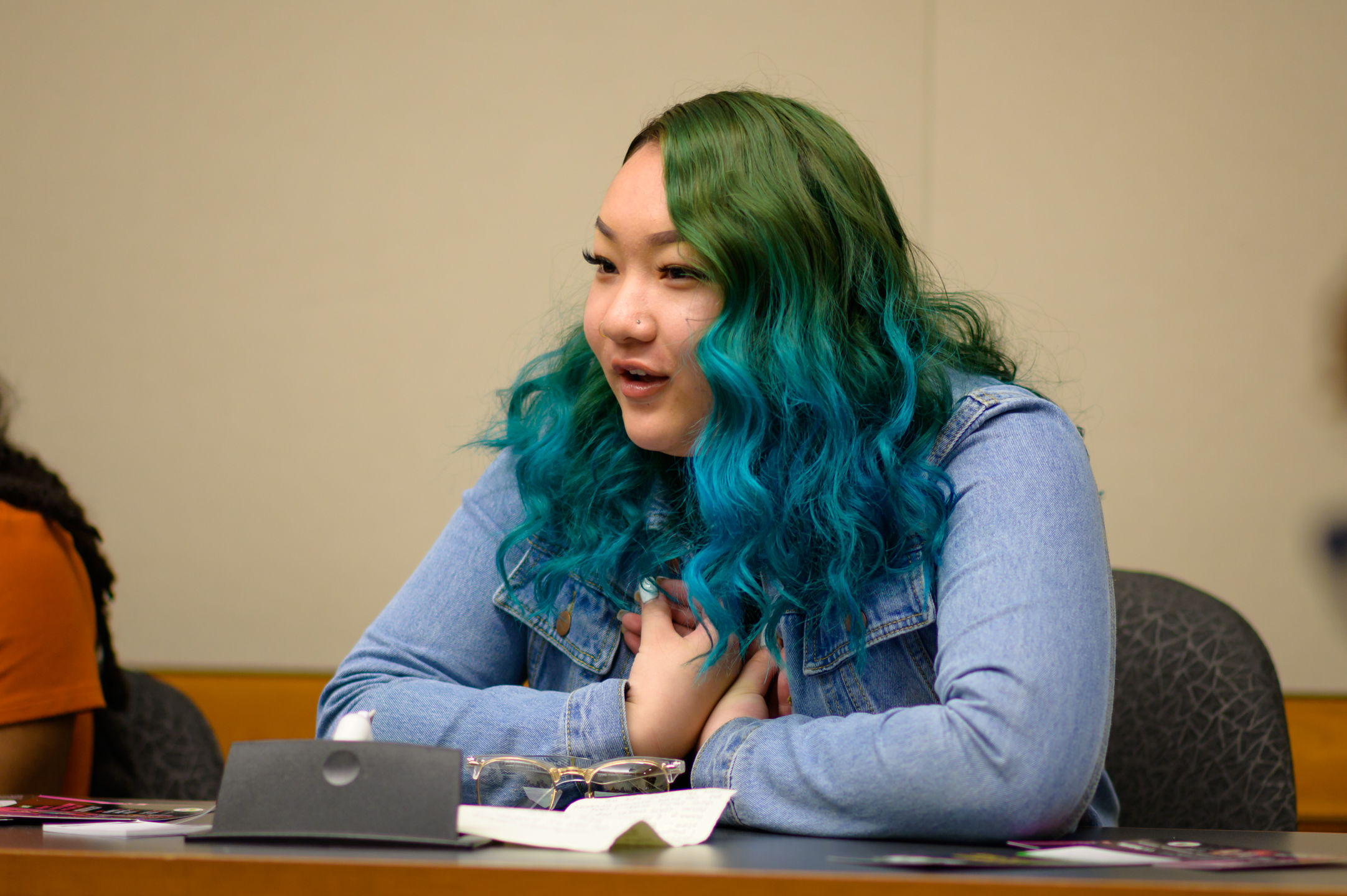
Jeanelle Hope responded, "As a Black girl, you all give me life. I spend a lot of time on this campus and there are very few Black students, so it means everything to me to be able to walk into a classroom and work with Black girls that look like me and come from the block like me." Hope continued,

"More than anything, you all have opened my mind up to reimagine what education can look like. You don't have your traditional classroom where we know our babies aren't being listened to, aren't being supported. You all have helped me imagine how we can truly transform and provide equity to education, particularly at the K through 12 level."
Spoken Word Performances
After a Q&A discussion, the SAYS event fittingly concluded with spoken word from students Marshae J. and Markeisha B.. Marshae, a third year student in the program, faced challenges when she first moved to Sacramento, but "Coco and Mama P really embraced me, [...] and helped me mature."
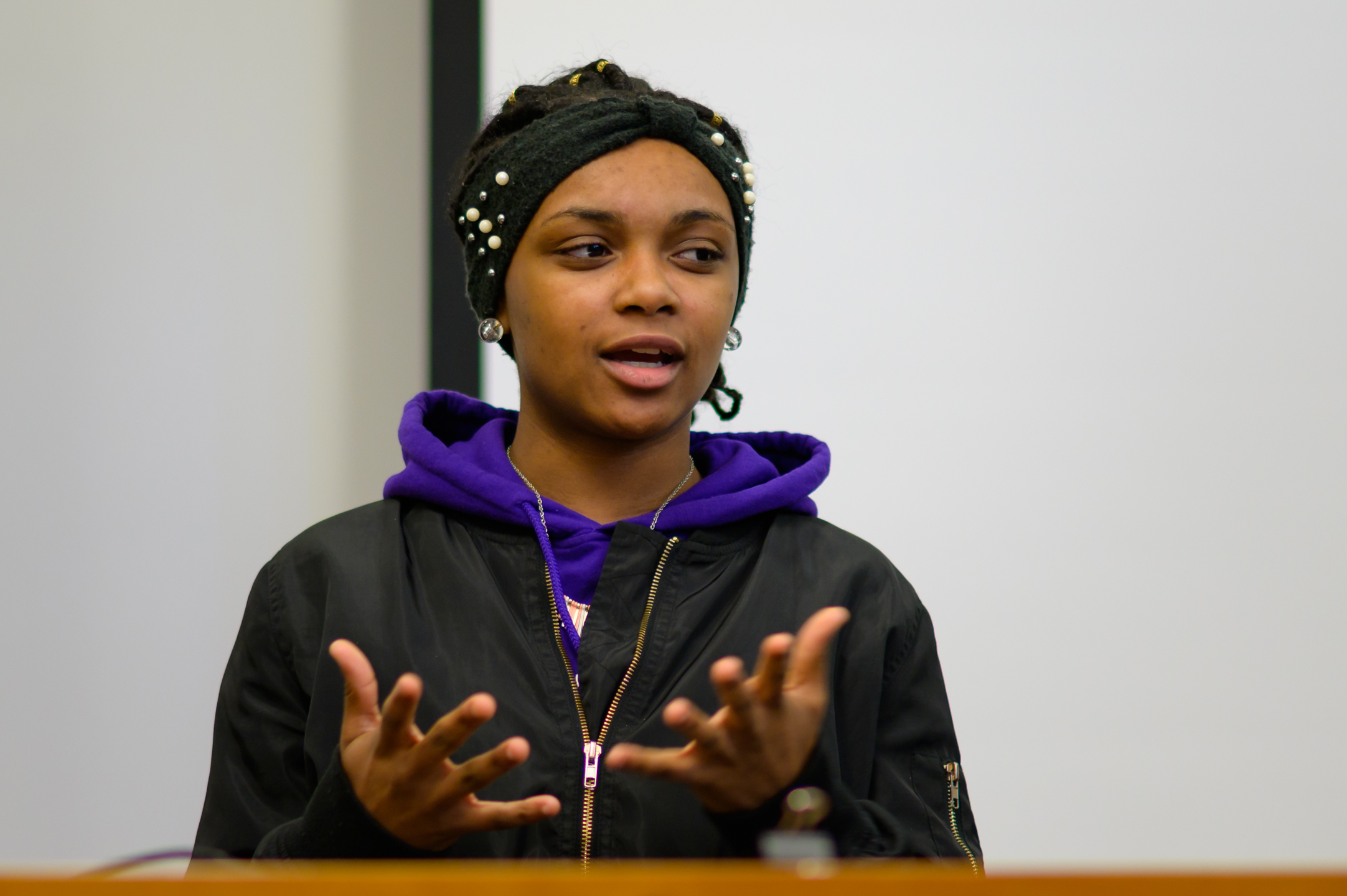
". . . because we put our fists up
to the people that dissed us
taking back what they stole from us
because our identity
will keep going down in history."
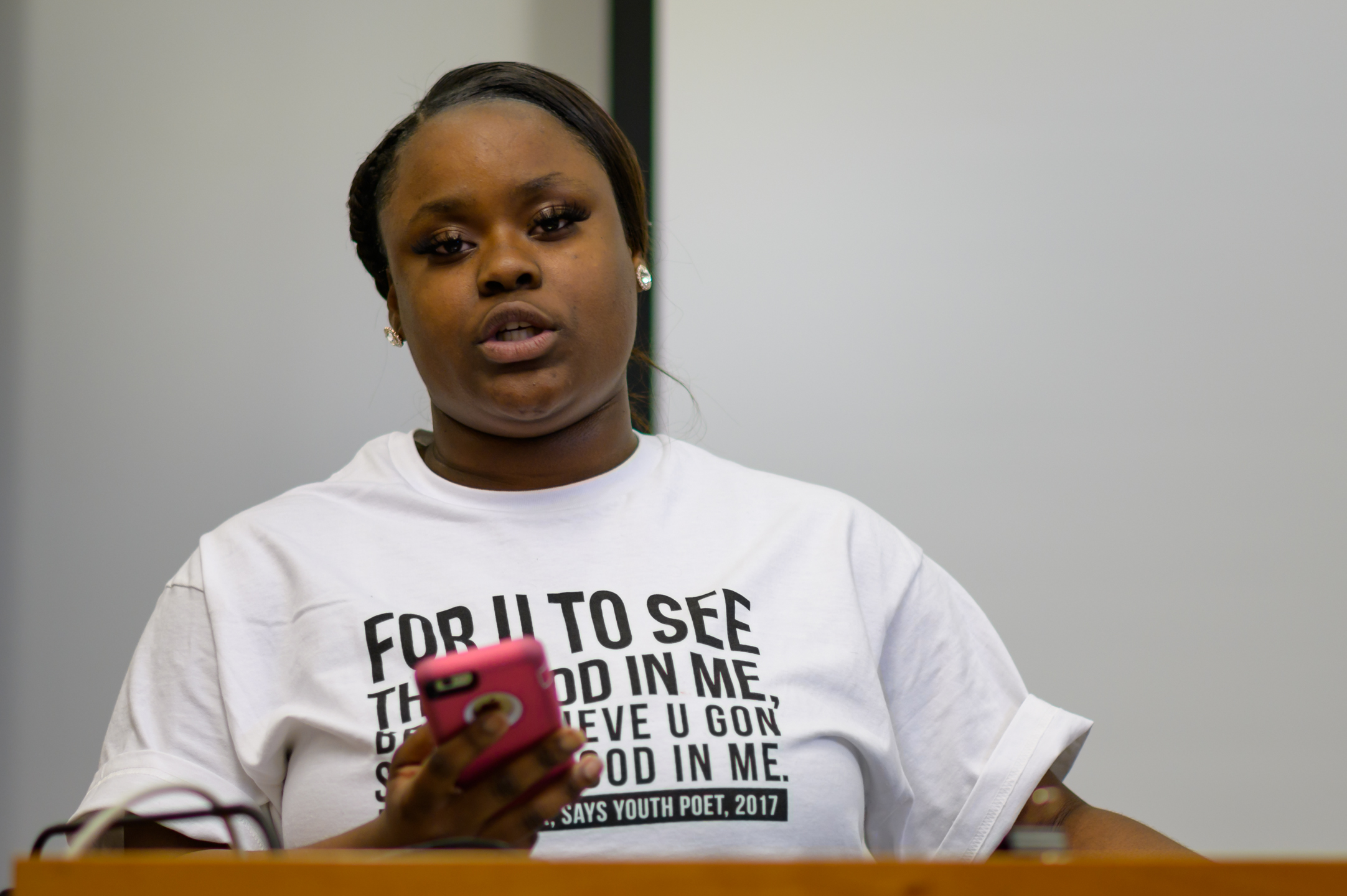
Video of Event: https://mediasite.ucdavis.edu/Mediasite/Play/b0615c8f0ff24739b16e18b4739f87961d